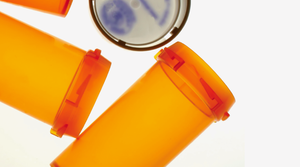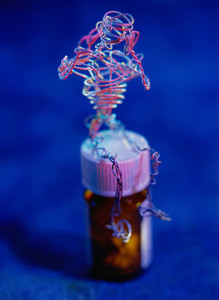A member of the European Parliament (MEP) has questioned the European Commission (EC)’s estimate that 20,000 active pharmaceutical ingredient (API) producers supply the European Union (EU), which was used to justify not having mandatory inspections, and the CEO of Hovione added that the numbers have been “dramatically misunderstood”.
Confusion about number of European API plants in China
Generics/General
|
Posted 15/01/2010
 0
Post your comment
0
Post your comment

After analysing industry responses to its initial anti-counterfeiting proposals the EC published a draft directive, accompanied by a working document, in December 2008. The document stated that there are an estimated 20,000 third-country API plants supplying the EU. Mandatory inspections of all these sites were regarded as too expensive and consequently excluded from the draft directive.
However, a priority question to the EC from MEP Amalia Sartori has raised doubts about whether 20,000 is the appropriate figure when considering mandatory inspections. In a Written Parliamentary Question to the European Commission she asked: “The proposal (COM(2008)0668) amending Directive 2001/83/EC(1) with a view to establishing an effective system to prevent the entry into the legal supply chain of medicinal products which are falsified in relation to their identity, history or source does not provide for any compulsory inspections of foreign sites where APIs are produced. According to the working documents annexed to the proposal (SEC(2008)2674 and SEC(2008)2675) the reason for that decision was that the European pharmaceuticals industry draws supplies from some 20,000 extra-European production sites, 15,000 of which are in China, numbers which would make the establishment of an effective system of controls unacceptably expensive. However, the CEFIC, the largest European association of pharmaceuticals manufacturers, rejects that estimate, which it itself provided, and instead puts the number of production sites in China at roughly 500. What is more, the US FDA officially estimates the number of production sites in China at 714. Can the Commission provide an official figure for the number of sites producing APIs for the European market? What is the explanation for the fact that the FDA puts the number of API production sites in China at 714, whereas the Commission report refers to 15,000 sites?” Evidence supporting her doubt has already been provided by Guy Villax, CEO of Hovione, and Chris Oldenhof, President of the Active Pharmaceutical Ingredients Committee (APIC) and also Manager of External Regulatory Affairs at DSM and a board member of the European Fine Chemicals Group (EFCG) (see GW177-2C).
Ms Sartori, the MEP who filed the question with the EC, told Outsourcing-Pharma that she is convinced mandatory inspections are “the only effective way to protect our citizens and to guarantee the quality of medical products available in the European market”.
References:
Nick Taylor. MEP questions figure used to justify not having mandatory inspections of API plants. Outsourcing Pharma. 2009 December 2.
Nick Taylor. Mandatory overseas API inspections needed; ITRE. Outsourcing Pharma. 2009 December 8.
Commission staff working document. Accompanying document to the Proposal for a DIRECTIVE OF THE EUROPEAN PARLIAMENT AND OF THE COUNCIL amending Directive 2001/83/EC as regards the prevention of the entry into the legal supply chain of medicinal products which are falsified in relation to their identity, history or source. Commission of the European communities. 2008 December 10.
WRITTEN QUESTION by Amalia Sartori (PPE) to the Commission - Subject: Compulsory inspections of active pharmaceutical ingredient production sites, to check compliance with good manufacturing practice. 2009 November 18.
Ed Silverman. Overseas API inspections should be mandatory. Pharmalot. 2009 December 8.
Source: Outsourcing Pharma; Commission of the European communities; Pharmalot
Research
Japan’s drug shortage crisis: challenges and policy solutions
Saudi FDA drug approvals and GMP inspections: trend analysis
EMA launches European shortages monitoring platform to tackle persistent medicine shortages

Generics/General Posted 03/12/2024
FDA releases one-year progress report for the Generic Drug Cluster

Generics/General Posted 28/10/2022
The best selling biotechnology drugs of 2008: the next biosimilars targets








Post your comment